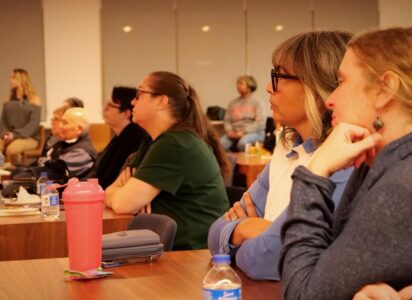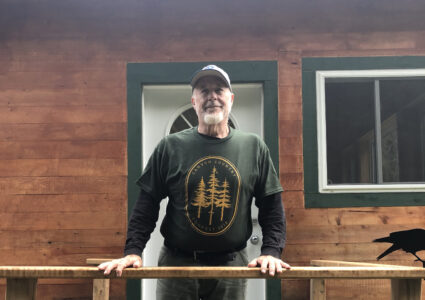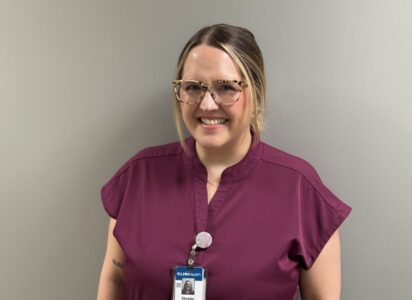Breast cancer treatment has come a long way
A century ago, a breast cancer diagnosis came with a grim prognosis. The five-year survival rate for breast cancer in the U.S. during the 1920s was less than 5%. But thanks to decades of research and innovation, survival rates have soared since then to an overall rate of 91% for some breast cancers, with some being as high as 99%.
Improvements in breast cancer screening and treatment were associated with a 58% reduction in breast cancer deaths in the United States between 1975 and 2019, according to an analysis published in the Journal of the American Medical Association. This includes FDA approval of 30 drugs to treat breast cancer between 2010 and 2020.
Dr. Jodie Barr, an oncologist with the LMH Health Cancer Center, has cared for breast cancer patients for more than a decade and has seen some remarkable changes. This includes providing more targeted, less toxic treatments.
“As we continue to learn more about biomarkers, we’re tailoring treatments to what drives the patient’s cancer,” she said. “We’re able to look at the specific proteins or molecules found in their cells and use a more targeted approach.”
Let’s say that a patient with breast cancer has surgery. They’ll likely undergo lymph node dissection where the surgeon removes lymph nodes, usually from the underarm, to determine if their cancer has spread beyond the breast and to remove cancerous nodes.
“In the past, patients who had lymph nodes positive for cancer would automatically have chemotherapy. Now we’re looking at targeting the cancer differently and increasing our patients’ quality of life,” Barr said.
New advances are on the horizon
Cancer care continues to improve, thanks to research and clinical trials. The National Cancer Institute explains that clinical trials test new ways to find, prevent and treat cancer. They also help to improve the quality of life for people with cancer by testing ways to manage the side effects of the disease and its treatment.
Barr is particularly excited about findings that may lead to de-escalating treatments for some patients.
“Some trials are demonstrating that we’re able to do less radiation for cancers with a certain pathology and less chemotherapy for others,” she said. “That’s exciting news.”
Remember when we talked about lymph nodes? These nodes help drain fluid from the body. Patients who have nodes removed during surgery or undergo radiation therapy are more susceptible to developing a condition called lymphedema, where excess fluid accumulates in the body’s tissues.
“If a patient needs to have lymph node dissection, we’re now able to perform a procedure called lymphatic node reconstruction. Surgeons are able to rebuild damaged lymphatic vessels, which helps fluid drain and reduces the chance of developing lymphedema,” Barr said.
The future of cancer care
One of Barr’s greatest hopes is being able to treat cancer in a less toxic and more tolerable way, allowing patients to have fewer side effects during treatment and in the long term.
“There may even be a day when oncologists don’t even say that we’re treating breast cancer. It’s just cancer. We’ll know what drives it and how to target it,” she said.
While research has come a long way over the century, Barr said there’s still more to learn about breast cancer. One of her biggest concerns is ensuring there’s a strong base of financial support, especially for clinical trials.
“Clinical trials are vital to improving survival rates and quality of life for our patients. We have to have financial support to be able to learn and innovate,” Barr said. “We can only do so much as physicians. We need our legislators to continue to advocate for these funds. It’s so important to our patients.”
Nationally accredited care without the road trip
One in eight women will be diagnosed with breast cancer during their lifetime. Even with that staggering statistic, Barr said that the survival rate is so much better than it’s ever been.
“With our targeted treatments, patients are living longer and having better quality of life — even for those with metastatic cancer. And we know that if there’s a bigger tumor and advanced disease, we still have greater potential to cure,” she said.
If you find yourself facing this disease, the team at the LMH Health Cancer Center is here to help.
The Cancer Center has been accredited by the National Accreditation Program for Breast Cancers and the Commission on Cancer. Both recognize the patient-first care and multidisciplinary approach that clinicians, nurses and staff take to treat cancer.
“Our entire team works together to provide evidence-based cancer treatment for all of our patients. From our nurse navigators, research nurse, radiation and medical oncology, surgery, occupational therapy — it takes a village to make sure that you’re getting great, comprehensive care. That’s what you’ll find at LMH Health,” Barr said.
Learn more
One in 8 women will be diagnosed with breast cancer in their lifetime, according to the American Cancer Society. Early education and awareness can make all the difference.
Join LMH Health and the Lawrence Public Library for a Community Forum on Breast Cancer — a free, informative evening featuring leading local experts who will share insights on prevention, diagnosis, treatment, and recovery.
The forum will be held on Monday, Oct. 20, from 6:30-8 p.m. at the Lawrence Public Library. Its featured speakers will be Dr. Scarlett Aldrich of Plastic Surgery Specialists of Lawrence; Dr. Jodie Barr of the LMH Health Cancer Center; Dr. Jennifer Hawasli of Lawrence Breast Specialists; and Dr. Richard Kuckleman of Radiologic Professional Specialists.
• Autumn Bishop is the marketing manager and content strategist at LMH Health, which is a sponsor of the Lawrence Journal-World health section.






